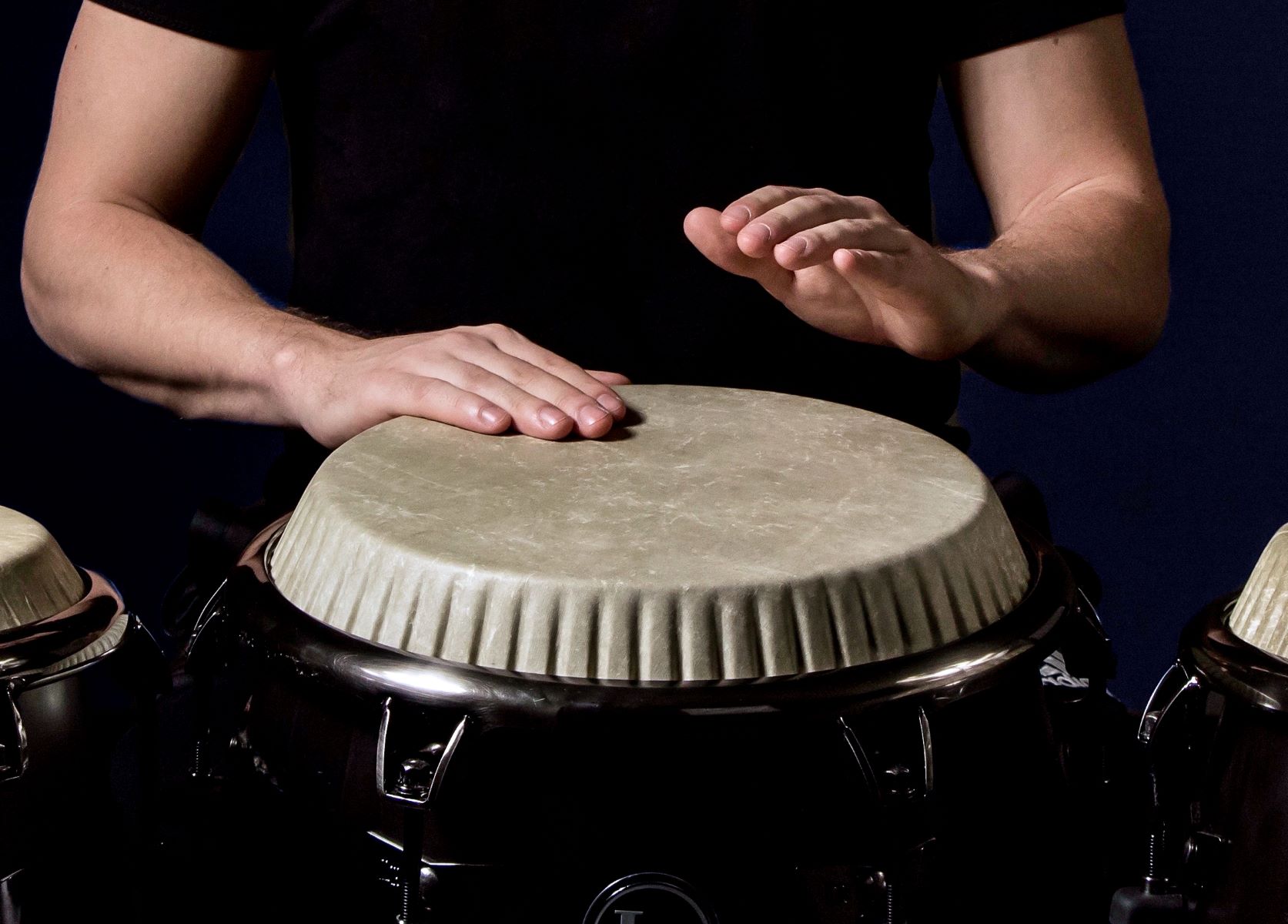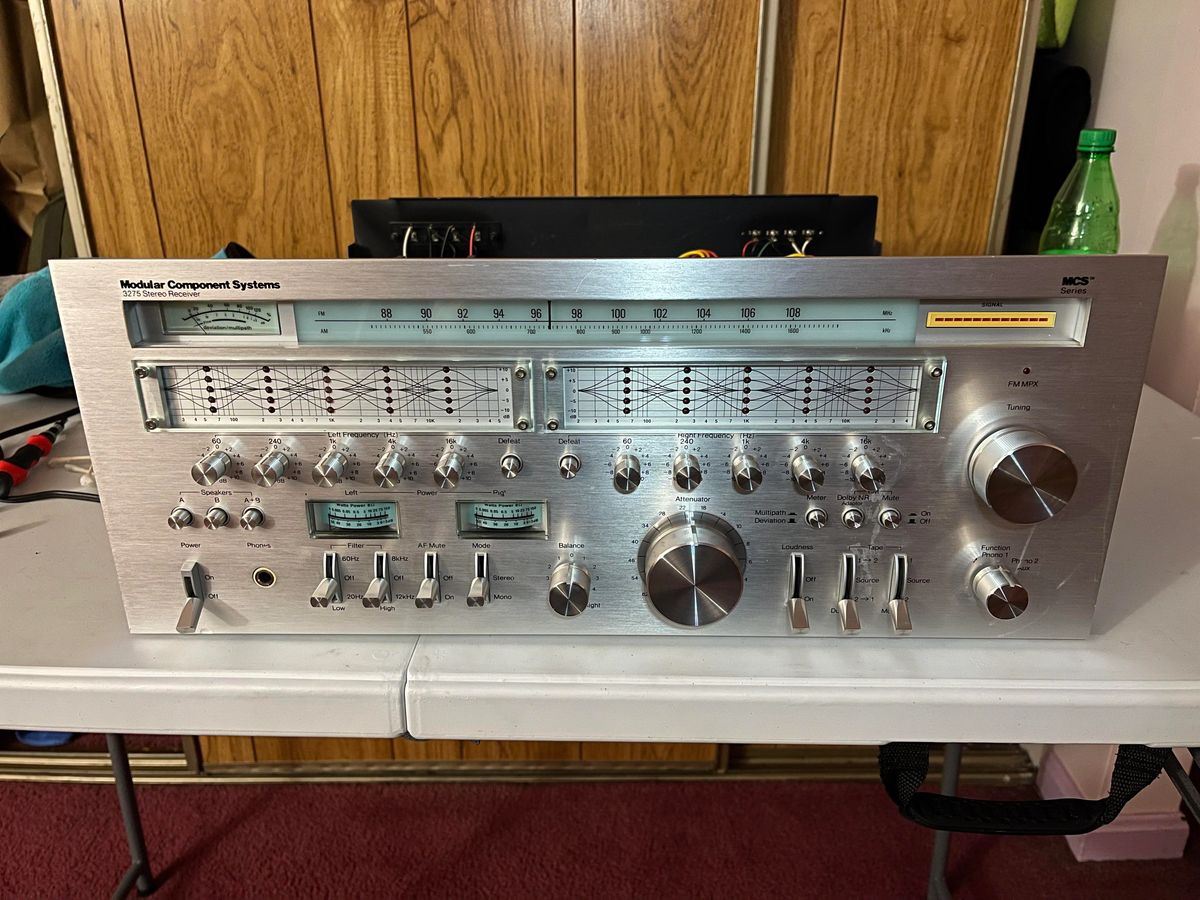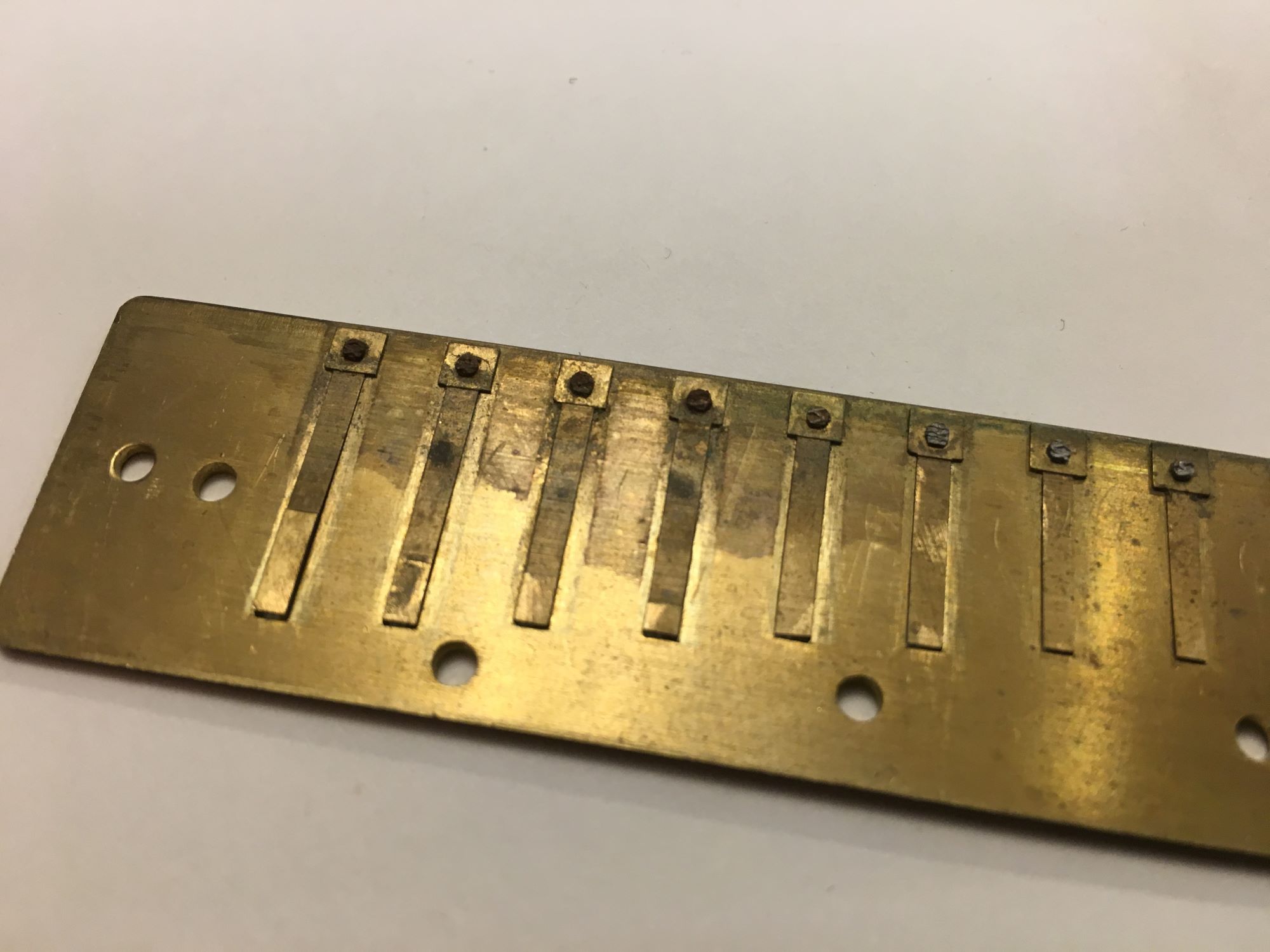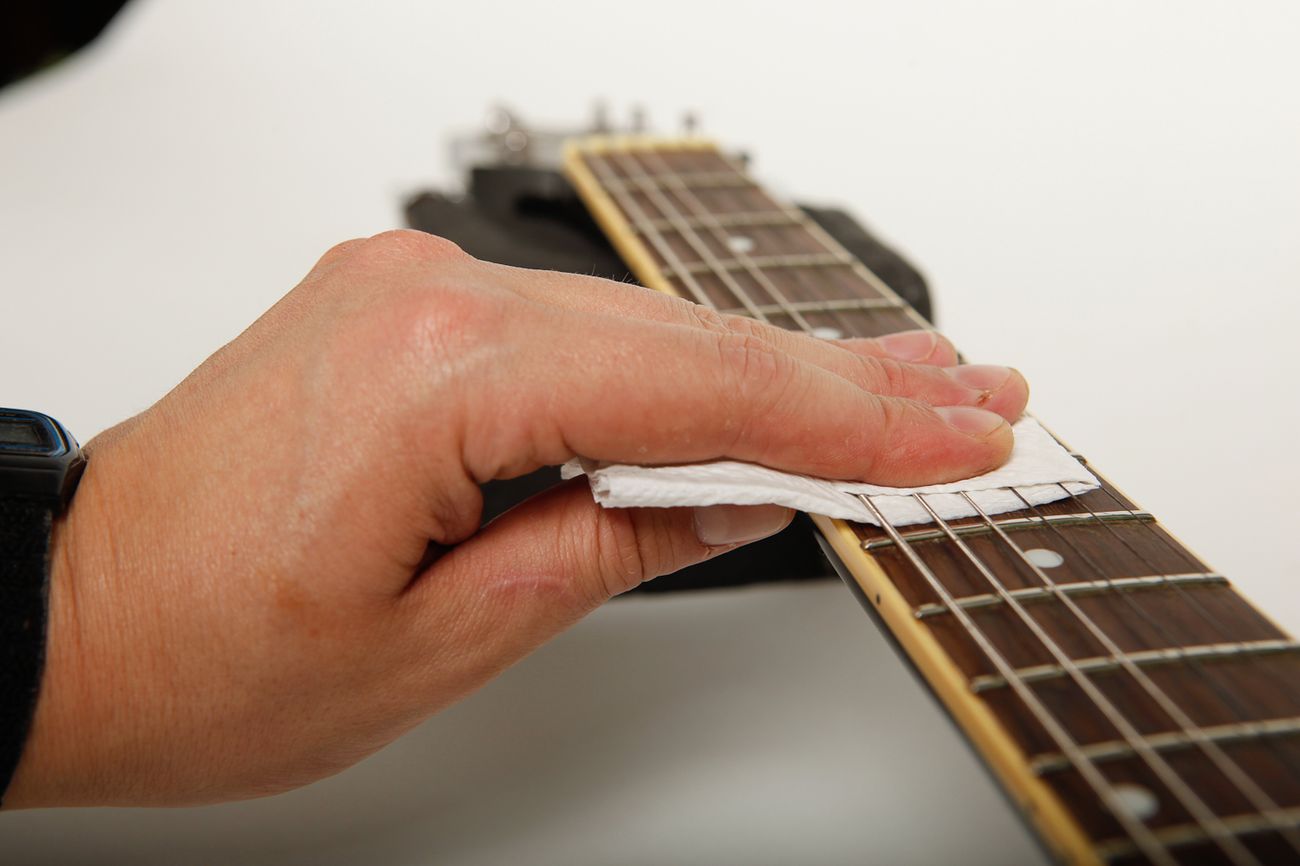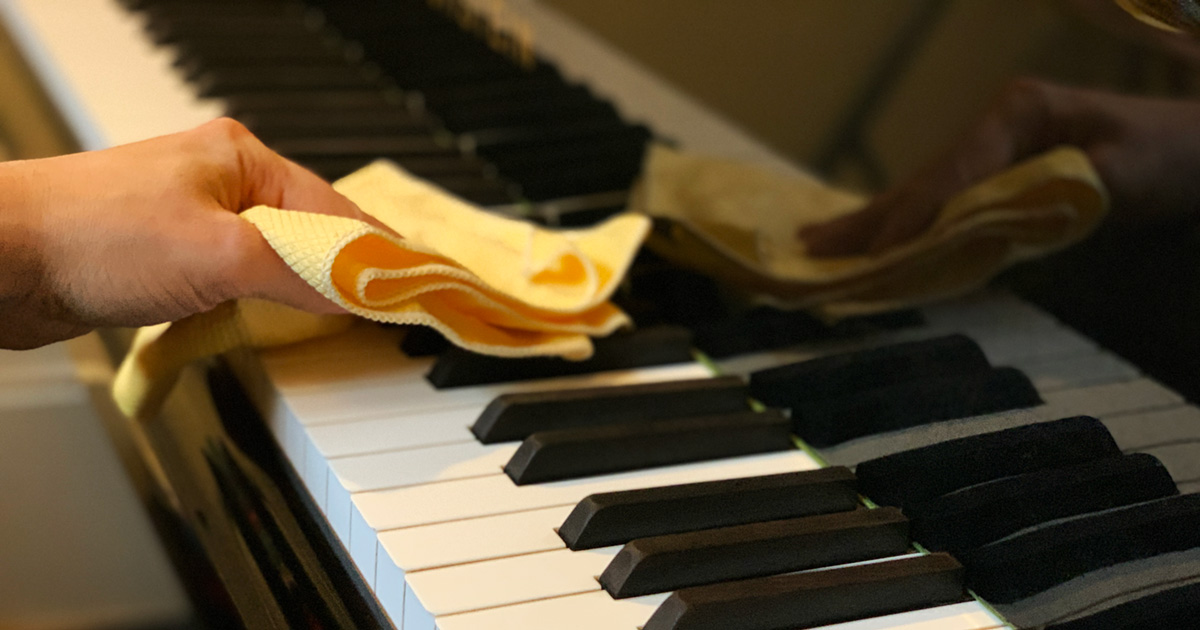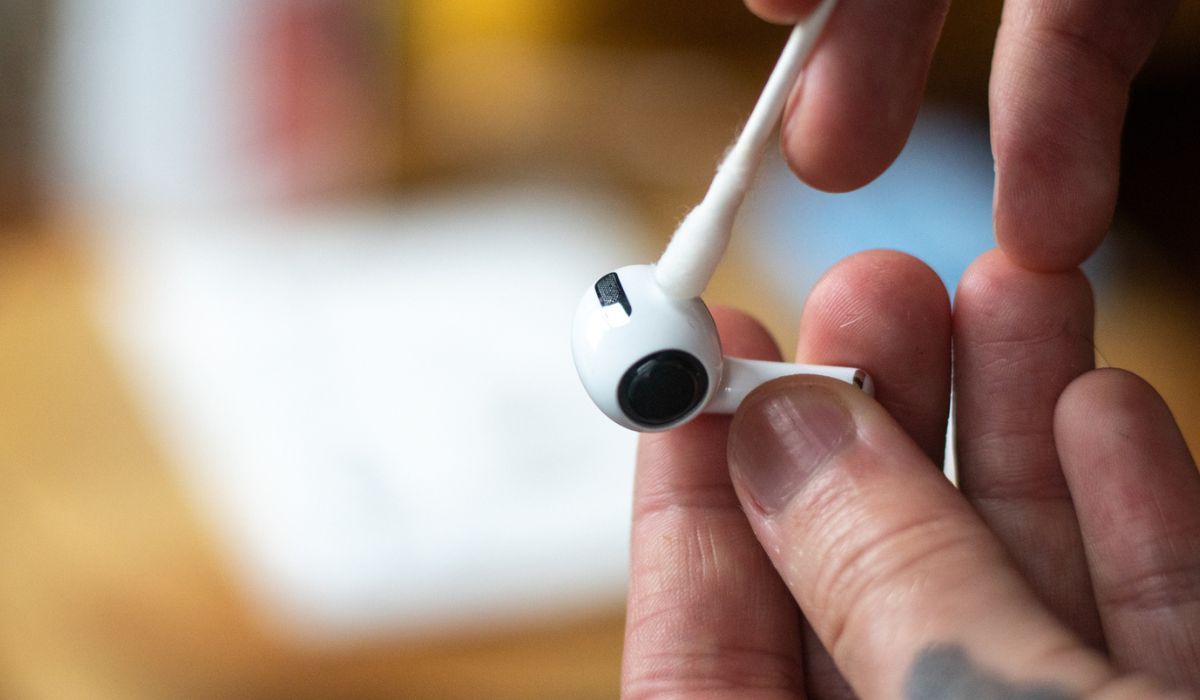Home>Instruments>Guitar>What To Clean A Guitar With
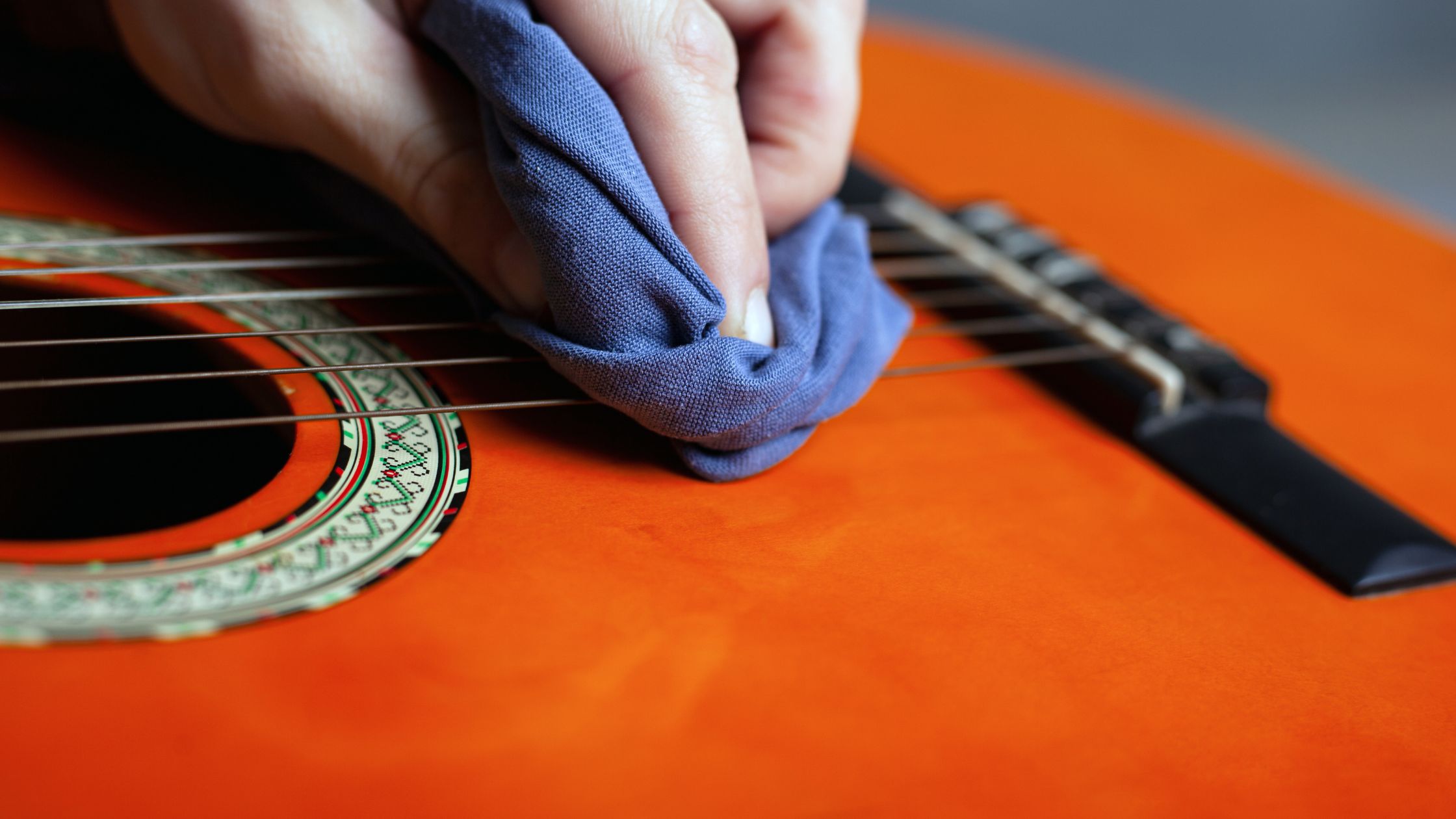

Guitar
What To Clean A Guitar With
Published: February 15, 2024
Keep your guitar in top condition with the right cleaning products. Learn what to clean a guitar with to maintain its appearance and sound quality. Keep your instrument looking and sounding its best.
(Many of the links in this article redirect to a specific reviewed product. Your purchase of these products through affiliate links helps to generate commission for AudioLover.com, at no extra cost. Learn more)
Table of Contents
Introduction
Whether you're a seasoned guitarist or just starting out, taking care of your instrument is crucial for maintaining its sound quality and longevity. One often overlooked aspect of guitar maintenance is cleaning. Regular cleaning not only keeps your guitar looking great but also ensures that it continues to produce the best possible sound. In this comprehensive guide, we'll explore the best practices for cleaning your guitar, including what to use and what to avoid, as well as step-by-step instructions for cleaning the body, fretboard, and strings.
A clean guitar not only looks more appealing but also plays and sounds better. By removing dirt, grime, and oils that accumulate over time, you can prevent premature wear and tear on your instrument. Additionally, regular cleaning can help you identify any potential issues such as cracks, loose hardware, or fret problems before they escalate into more serious problems.
In the following sections, we'll delve into the specifics of cleaning different parts of your guitar, from the body to the fretboard and strings. We'll also highlight the importance of using the right cleaning materials to avoid damaging your instrument. Whether you're a casual strummer or a professional musician, learning how to properly clean your guitar is an essential skill that will benefit both you and your instrument in the long run. So, let's dive in and discover the best practices for keeping your guitar in top condition!
Why it’s important to clean your guitar
Regularly cleaning your guitar is essential for preserving its appearance, playability, and sound quality. Over time, dust, sweat, and oils from your hands can accumulate on the instrument, leading to a dull finish, tarnished hardware, and diminished sound. By maintaining a consistent cleaning routine, you can prevent these issues and ensure that your guitar continues to look and sound its best.
One of the primary reasons to clean your guitar is to protect its finish. Whether your guitar has a glossy polyurethane coating or a natural wood finish, regular cleaning helps to remove dust and grime that can dull the surface and diminish its luster. Additionally, cleaning the fretboard and strings can prevent the buildup of dirt and oils, which can affect the playability and tone of the instrument.
Furthermore, regular cleaning allows you to inspect your guitar for any signs of wear or damage. By closely examining the instrument during the cleaning process, you can identify issues such as cracks, loose frets, or corroded hardware. Catching these problems early on can prevent them from escalating into more serious issues that require extensive repairs.
From a practical standpoint, maintaining a clean guitar can also contribute to a more enjoyable playing experience. A smooth, polished fretboard and clean, rust-free strings can make fretting and bending notes easier, while a well-maintained body and hardware can enhance the overall comfort and playability of the instrument.
Finally, keeping your guitar clean demonstrates your respect and appreciation for your instrument. Whether it’s a cherished heirloom or a brand-new acquisition, regular cleaning shows that you value and care for your guitar, which can foster a deeper connection between you and your instrument.
In essence, cleaning your guitar is not just about aesthetics; it’s a fundamental aspect of instrument maintenance that directly impacts its performance, longevity, and your overall playing experience.
What not to use when cleaning your guitar
When it comes to cleaning your guitar, it’s crucial to avoid using certain products and materials that can cause damage to the instrument’s finish, hardware, and overall integrity. While it may be tempting to reach for common household cleaners or abrasive substances, using the wrong cleaning agents can lead to irreversible harm. Here are some items to steer clear of when cleaning your guitar:
- Household Cleaners: Products such as window cleaners, kitchen sprays, and all-purpose cleaners contain chemicals that can be harsh and abrasive, leading to damage to the guitar’s finish and hardware. These cleaners can strip away the protective coatings on the guitar’s surface, leaving it vulnerable to scratches and discoloration.
- Abrasive Materials: Avoid using abrasive cloths, steel wool, or rough sponges when cleaning your guitar. These materials can scratch the finish, leaving unsightly marks and compromising the visual appeal of the instrument.
- Ammonia-Based Products: Cleaners containing ammonia should never be used on guitars, as they can cause clouding or hazing on the finish, particularly on glossy surfaces.
- Furniture Polish: While furniture polish may seem like a suitable option for adding shine to your guitar, it often contains silicone, which can create a cloudy residue and interfere with future refinishing or repairs.
- Excessive Water: Using excessive water or soaking the guitar during cleaning should be avoided, as it can seep into the instrument’s body, potentially causing warping, swelling, or damage to the internal components.
By steering clear of these harmful substances and materials, you can protect your guitar from unnecessary wear and maintain its pristine condition for years to come. In the following sections, we’ll explore the recommended cleaning materials and methods that will help you keep your guitar looking and sounding its best without risking any damage.
How to clean the body of your guitar
Keeping the body of your guitar clean not only enhances its visual appeal but also protects the finish and overall integrity of the instrument. Here’s a step-by-step guide to effectively clean the body of your guitar:
- Gather the Right Materials: Before you begin, ensure that you have a soft, lint-free cloth and a dedicated guitar polish or cleaner. Avoid using household cleaners or abrasive materials, as they can damage the finish.
- Remove the Grime: Wipe down the body of the guitar with the dry cloth to remove any surface dust and grime. This initial step prevents particles from scratching the finish during the cleaning process.
- Apply the Guitar Polish: Apply a small amount of guitar polish onto the cloth. It’s important to use a polish specifically designed for guitars, as it will be gentle on the finish while effectively removing fingerprints, smudges, and light dirt.
- Gently Polish the Surface: Using light pressure, gently polish the body of the guitar in circular motions. Focus on small sections at a time, ensuring even coverage and a consistent shine. Avoid applying excessive pressure, as this can lead to swirl marks or uneven polishing.
- Buff to a Shine: Once the polish has been applied, use a clean section of the cloth to buff the surface to a brilliant shine. This final step removes any remaining residue and leaves the body of the guitar looking pristine.
By following these steps and using the appropriate cleaning materials, you can effectively maintain the appearance of your guitar’s body without causing any damage to the finish. Remember to perform this cleaning routine regularly to keep your guitar looking its best and to safeguard its long-term beauty and value.
How to clean the fretboard of your guitar
The fretboard of a guitar requires special attention during the cleaning process to ensure that it remains smooth, free of grime, and well-maintained. Here’s a detailed guide on how to effectively clean the fretboard:
- Prepare the Fretboard: Before cleaning, loosen the tension of the guitar strings to create space for accessing the fretboard. You can either remove the strings or use a capo to hold them away from the fretboard.
- Remove Surface Debris: Use a soft, dry cloth to gently remove any loose dirt, dust, or residue from the fretboard. Pay close attention to the areas around the frets and the spaces between them to ensure thorough cleaning.
- Apply Fretboard Conditioner: If your fretboard is made of unfinished wood, such as rosewood or ebony, apply a small amount of specialized fretboard conditioner onto a clean cloth. For finished fretboards, a damp cloth can be used to wipe away dirt and grime. Be sure to follow the manufacturer’s recommendations for the specific type of wood.
- Gently Clean the Fretboard: With the conditioner or damp cloth, gently clean the fretboard, working along the grain of the wood. This process helps to lift and remove stubborn dirt and oils while conditioning the wood to prevent it from drying out or cracking.
- Remove Excess Conditioner: After cleaning, use a separate dry cloth to remove any excess conditioner or moisture from the fretboard. This step ensures that the wood is left in a clean, conditioned state without any residual buildup.
- Re-tension the Strings: Once the fretboard is clean and dry, re-tension the guitar strings to their proper tuning and playing condition. This step completes the cleaning process and prepares the guitar for optimal playability.
By following these steps and using appropriate fretboard conditioners, you can effectively clean and maintain the fretboard of your guitar, ensuring that it remains smooth, visually appealing, and structurally sound. Regular cleaning and conditioning of the fretboard will not only enhance the playability of the instrument but also contribute to its long-term durability and performance.
How to clean the strings of your guitar
Regularly cleaning the strings of your guitar is essential for maintaining their tone, playability, and longevity. Over time, sweat, oils, and dirt from your fingers can accumulate on the strings, leading to a dull sound and diminished responsiveness. Here’s a comprehensive guide on how to effectively clean the strings of your guitar:
- Gather the Right Materials: Before cleaning the strings, prepare a soft, lint-free cloth and a string cleaner or lubricant specifically designed for guitars. Avoid using household cleaners or abrasive materials, as they can damage the strings and fretboard.
- Remove Surface Debris: Use the cloth to gently wipe down each string, removing any visible dirt, grime, and residue. This initial step helps to prevent the buildup of contaminants that can affect the strings’ performance and tone.
- Apply String Cleaner: Apply a small amount of specialized string cleaner or lubricant onto the cloth. Ensure that the product is designed to clean and protect guitar strings without leaving a sticky residue.
- Clean Each String: Starting from the low E string and working towards the high E string, gently run the cloth along each string, applying the cleaner evenly. This process effectively removes dirt, oils, and corrosion, restoring the strings’ smoothness and enhancing their vibrancy.
- Remove Excess Cleaner: After cleaning, use a dry section of the cloth to remove any excess cleaner or moisture from the strings. This final step ensures that the strings are left clean, dry, and free from any residual buildup.
- Play and Test: Once the strings are clean and dry, play the guitar to test the improved tone and responsiveness. You’ll likely notice a brighter, more articulate sound and smoother string action after cleaning.
By following these steps and using the appropriate cleaning materials, you can effectively clean and revitalize the strings of your guitar, ensuring that they maintain their optimal tone, feel, and durability. Regular cleaning of the strings not only enhances the instrument’s playability but also contributes to a more enjoyable and consistent playing experience.
Conclusion
Keeping your guitar clean is not just about aesthetics; it’s a fundamental aspect of instrument maintenance that directly impacts its performance, longevity, and your overall playing experience. By following the recommended cleaning practices and using the right materials, you can ensure that your guitar remains in top condition for years to come.
Regular cleaning of the guitar’s body, fretboard, and strings helps to preserve its appearance, playability, and sound quality. It prevents the buildup of dirt, grime, and oils that can affect the instrument’s finish, hardware, and tone. Additionally, cleaning provides an opportunity to inspect the guitar for any signs of wear or damage, allowing you to address potential issues before they escalate.
When cleaning your guitar, it’s essential to avoid using harsh or abrasive materials such as household cleaners, ammonia-based products, and furniture polish, as these can cause irreversible damage to the instrument. Instead, opt for specialized guitar polishes, fretboard conditioners, and string cleaners that are designed to effectively clean and protect your instrument without causing harm.
By maintaining a clean guitar, you not only ensure its visual appeal and playability but also demonstrate your respect and appreciation for your instrument. Whether you’re a casual player or a professional musician, the care and attention you invest in cleaning your guitar will directly impact its performance and your overall enjoyment of playing.
In conclusion, regular cleaning is a simple yet crucial practice that can significantly extend the life and beauty of your guitar. By incorporating these cleaning techniques into your instrument maintenance routine, you can enjoy a clean, well-maintained guitar that continues to inspire and delight every time you play.

